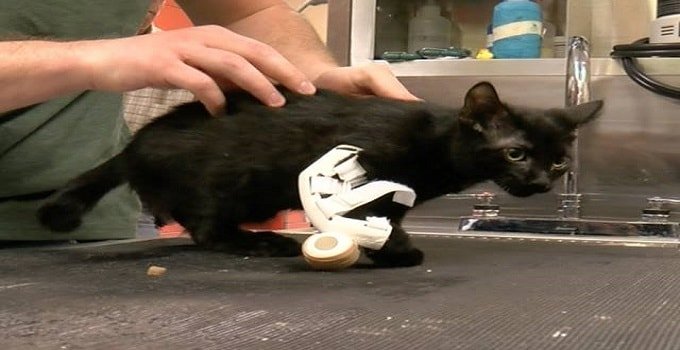TORONTO, CANADA – Saying that it’s a painful, unnecessary procedure that amounts to an “amputation,” one Toronto veterinary clinic says it will no longer be offering cat declawing among its services.

Cats are meant to have claws, say animal welfare groups, and at least one veterinary clinic in Toronto has stopped offering the procedure to cat owners. (George Mortimer/CBC)
In a statement on its website, the Bloor Animal Hospital Toronto says that it has decided declawing isn’t in the best interest of their kitty patients.
“This is a procedure that is not medically necessary, it does not benefit our patients in any way,” said Dr. Suzanne Lyons in an interview on Metro Morning Thursday. “When we sat down to think about it, we just couldn’t justify continuing to do such a procedure.”

One of the veterinary technicians disposing of the declawing instruments at Bloor Animal Hospital. (Bloor Animal Hospital)
Lyons said that de-clawing — which cat owners usually do to save their furniture from damage — amounts to an amputation. If done to a human, it would mean the removal of every bit of bone from the person’s knuckle to his finger tip.
“It’s an amputation of every digit of the four limbs,” she said.
Lyons said although de-clawed cats can live “great lives,” the procedure can also be painful and lead to complications post-surgery.
So what are the alternatives for cat owners?
Lyons offer the following suggestions:
1.) A scratching post: “If you introduce them at a young age, they’ll probably take to one.”
2.) Frequent nail trims: To minimize any damage.
3.) Soft Paws A product Lyons describes as very similar to “press-on nails for cats.” Applied with glue, the soft plastic tips go over the cat’s nails and make clawing impossible. “They’re soft, they’re comfortable and should your cat do that scratching behaviour, it won’t damage your furniture,” said Lyons.
4.) Feliway, a hormone which helps “decrease stress in cats” as a solution to clawing.
Lyons said declawing is coming under more and more scrutiny among her colleagues.
“I think it’s something more vets will take a stance on,” she said.









